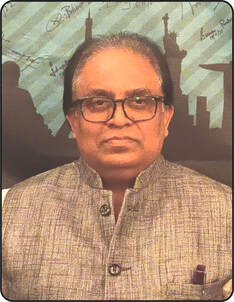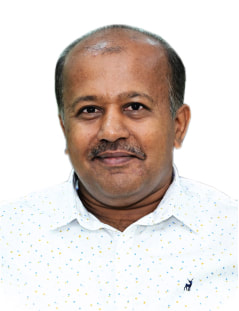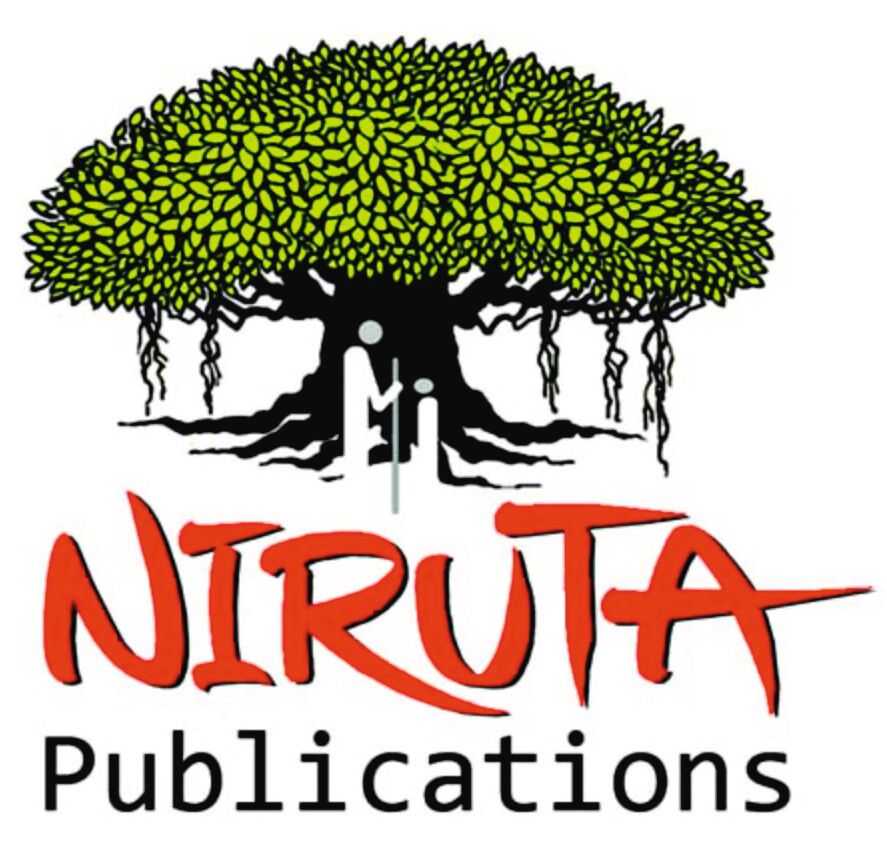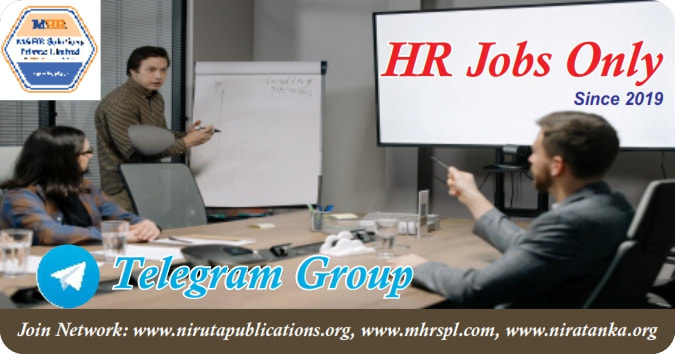|
1. How do you describe yourself?
An accidental HR who predominantly prefers to play employee advocacy role with enterprise first approach. Majority of us, while opting a path for profession, are not much sure of their choice. I was no exception. During my +2 level I had a strong liking for life science and then shifted to pure science during my pass course and opted for Chemistry as my honours course in my UG level. All of a sudden I thought about doing an MBA and while opting specialization I preferred dual specialization. I did my internships in Tata Steel and came to know about progressive labour practices of that organization even before it was promulgated as law of the nation. I chose HR and kept on serving the employees, internal customers of the organization throughout the ages. 2. You moved from HR to CRM. Does your HR experience help you achieve the desired success in your CRM career? A customer is a human in the first place. Temperament wise all customers are different just like the human being. Important is to integrate the HR practices with the expectations of customers. The role of any business enterprise depends on how first it can capture customer expectations and develop a successful model to deliver those models economically. As I said that I had dual specializations in my MBA and the portions of text covering consumer behaviour was always attractive to me. The formal education of marketing and skilling on IT helped me to adopt a career move from HR to CRM with ease. Nevertheless, HR continues to possess the most significant role in my deliberations with the customers. I see my CRM role as an opportunity to explore my learnings of marketing during my PG level.
3. What do you think are the biggest challenges ahead for the next generation of IR leaders?
I think the challenges have not been created by the practitioners. Perhaps as leaders we are over-obsessed by adopting the concept of HR as the central practice. As a People manager we should remain connected with the grass root employees. But during this new millennium as a practitioner we become more Tech-HR than ever before. There is no problem of being data driven and adopting evidence based practices. But humans are the foundations of the HR profession and thus understanding people's sentiments, reactions, group dynamics and mapping the dynamic IR framework are pivotal for the organization's success. In order to keep the profession alive, meaningful and a cherished one as a professional I shall always vouch for a continuous and engaged HR. Periodical revisit of the IR framework and building an ecosystem where the top management starts recognising that IR is not an outsourced rather mainstream job shall be the way out to reconcile the challenges that you are hinting at. As a People's manager we must appreciate that HR and IR are not different, they are not even HR&IR rather it is HRIR, the siamese twin. We have the legal framework for the purpose. In order to create a forward looking HRIR structure the thought leaders may work out different models to bring industrial truce, peace, harmony and prosperity within the law of land. Let us treat the people with fairness and in dignified manners; and not as "His Master's Voice", if we are serious of upholding the professional space after combating challenges.
4. What are some strategies that can help young IR professionals achieve the success they want in their careers?
They should spend more time with the grassroot employees and less time with their electronic gazettes and professional bosses. The more the young HR remains aligned with frontliners, understands their psyche and expectations; keep themselves engaged, the more successes they would be experiencing. They should equip themselves with the business realities, communicate, observe the reaction and give feedback to the business managers. Overhauling of active listening skill would be the hallmark of excellence. The business leaders need to appreciate that listening is a long term investment. 5. Union leaders are stronger than many current IR professionals! Your comments. I have a different perspective. There is gradual shifting of union leadership. They are becoming more Knowledge driven than that of yesteryears. The digital space made everyone informative, so did the Union leadership. The knowledge backed by numbers is always a formidable combination. In order to achieve productive output the People's managers must negotiate with affirmative positioning. This positivity could only be achieved with interaction with people on the shop floor and not exclusively by googling. Right information is fine for execution, but success depends on improvisation and not by copying. 6. What are your tips for creating a strong professional rapport between HR and union leaders? As an HR it is important to understand the intricacies of the tripartite legal framework of Industrial Relations, at the first place. The workforce, the management and the Government are the three stakeholders. Rather than getting engaged with a fire fighting mode as previously stated the HR should invest more time for active listening. Regular interfacing with the stakeholders and practicing effective communication shall be helpful for building rapport. Both the organization and business leaders should understand the role of HR. They are often not limited to periods of their organisation presence supported by their biometric attendance rather role demands quality personal time. An HR engaged in investing personal time shall always be honoured and respected by the workforce, so do the union leaders. 7. The HR department should have a labour law expert in the team. Do you agree with this? It depends on the size of the organization and there are no ready-fit solutions to all. I rather believe that it is important for HR to gather legal competencies with passage of their organizational journey. Often the organizations are not in a position to afford full time experts. The HR decisions need to be legally correct if it is challenged by an aggrieved person. The organization can lose time, energy and money if the decisions are not legally upheld. More importantly the organization could lose credence affecting the employer and overall brand positioning if such decisions are not sustained. If the organization is not in a position to have a full time expert then it may engage 'retainer' and internal legal competency of HR shall be very handy to select and maintain a long term association with the retainer. 8. Why is the permanent employment of workers decreasing significantly from year to year? In order to remain economically competitive, cost cutting is the call of the time. In a big nation, under-employment is becoming a larger issue than employment. Prior to the start of the LPG (Liberalization, Privatization and Globalization) era hardly any general people knew about the terms down-sizing, right-sizing, VR (Voluntary retirement), CR (Compulsory retirement). The people adapted to these terms, the workforce understood the effect of BPR (Business Process Reengineering) and Technology intervention. In the marketplace the business organizations are becoming expertise oriented thus they are avoiding to engage low end permanent workforce. HR has shifted to talent management. When there is availability of fixed term employment talents in the market why the organization shall invite cumbersome practices of permanent employment. But obviously there is a price tag for adopting such a cost cutting approach. 9. How do you encourage women not to give up? As a professional I strongly advocate for not giving up. I focus on their financial freedom and try to vision them into emerging challenges both at economical and social space. If they are into serious personal challenges I advocate for holding the decisions for some time and support them in their pursuits. If so required I try to counsel them using a lady who travelled through similar experience. Flexibility in approaching the existing organization policy is often the differentiator in achieving the final result. 10. What are you passionate about? As an individual I am passionate about co-creation. Probably I am more effective in the role that demands cross functional assimilation. The passion of co-creation led me to membership of multiple HR and Business associations. I am a life member of ISTD, NHRDN, NIPM and AIMA. I served all of them in some capacity or other both at the National and local level. I am into the 10th year of my association with the Executive body of Calcutta Management Association (local management association of AIMA), a mature multi discipline platform and now serving it as honorary Vice President of Calcutta Management Association. Currently, I am also elected as honorary Vice Chairman of National Institute of Personnel Management, Kolkata Chapter. I am voluntarily serving ASSOCHAM as Member, National Council for HR, IR Policy and Reforms for the last couple of years. All these volunteering roles involve diverse viewpoints from multiple sources. I have more than 100 published papers and articles on contemporary management and HR themes. Even at this advanced age I choose to become a research scholar. With a humble background all these could be materialised only because I am passionate and open to learning. 11. How do you define failure? When one is open to challenge the system, one should be ready to taste failure too. It is simple and straight. A system is built up by people and their mutual interests and values. They design a norm, right or wrongly. The moment one challenges it, the custodian of the system finds vulnerable and powerless. They will join hands and outnumber the individual. But even individual perception could also be wrong or prematurely taken. Thus failure is part of life if one acts. On a personal front my failures have overwhelmingly outnumbered my limited successes. 12. What is your definition of work ethics? Defining work ethics is a difficult task. Often it is limited to a few texts. It is differently practised based on organisation's leadership, culture, business goal and corporate governance laws. The work ethics is all about practice; in the worst case in order to practice work ethics one should be ready to a side role or search a way out. Often it may not be easy to combat. But the approach should be to find the next best practice of corporate ethics and put it in practice. If there is any blurred area in practicing work ethics probably we are not a Professional, more so an HR professional who is the custodian of Institutional corporate governance. But again it is difficult to practice on the field. But practicing as a passion is different. One is a free individual outside of paid service. On the personal front I never send my nomination for any HR award or pay for any publication or speak. I am resolute not to buy an award or a space. I hate body shopping. Please pardon me if I am hard on my words.
30,000 HR PROFESSIONALS ARE CONNECTED THROUGH OUR NIRATHANKA HR GROUPS. YOU CAN ALSO JOIN AND PARTICIPATE IN OUR GROUP DISCUSSIONS
0 Comments
Leave a Reply. |
Categories
All
50,000 HR PROFESSIONALS ARE CONNECTED THROUGH OUR NIRATHANKA HR GROUPS.
YOU CAN ALSO JOIN AND PARTICIPATE IN OUR GROUP DISCUSSIONS. |
||||||||
SITE MAP
SiteTRAININGJOB |
HR SERVICESOTHER SERVICESnIRATHANKA CITIZENS CONNECT |
NIRATHANKAPOSHOUR OTHER WEBSITESSubscribe |
MHR LEARNING ACADEMY
50,000 HR AND SOCIAL WORK PROFESSIONALS ARE CONNECTED THROUGH OUR NIRATHANKA HR GROUPS.
YOU CAN ALSO JOIN AND PARTICIPATE IN OUR GROUP DISCUSSIONS.
YOU CAN ALSO JOIN AND PARTICIPATE IN OUR GROUP DISCUSSIONS.
|
|







 RSS Feed
RSS Feed





